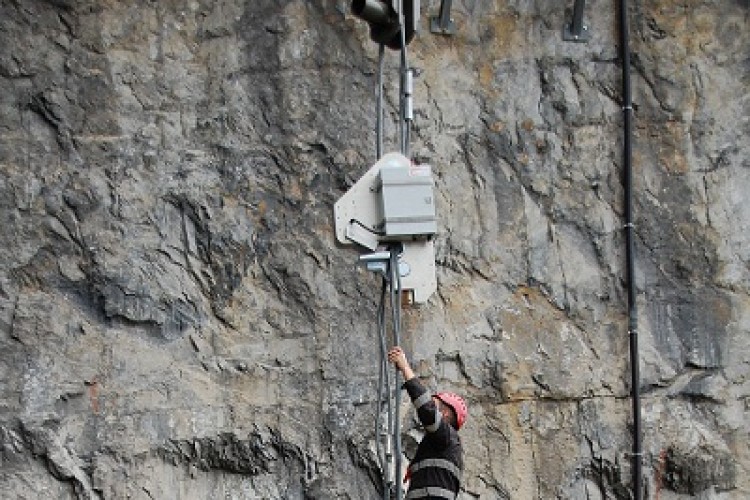The record was set on October 10, and involved the Swiss Federal Institute for Forest, Snow and Landscape Research WSL and Geobrugg.
During the trial run for approval testing of a new rock fall protection barrier, the structure stopped a concrete block weighing 20 tons and travelling over 100 km/h.
The world record for flexible rock fall protection barriers was set at Lochezen test facility in Walendstadt / Switzerland on Monday, October 10, 2011. The facility is operated jointly by WSL and the company Geobrugg AG Geohazard Solutions. A concrete test block weighing 20 tonnes, free-falling from a height of 43 m and hitting the netting of the barrier at a speed of 103 km/h, was successfully stopped. The recently developed, high-performance flexible rock fall protection barrier was manufactured by Geobrugg AG, based in Romanshorn/Switzerland. The impact energy was 8,000 kilojoules, exceeding the previous performance limit for high-performance flexible rock fall barriers (5,000 kJ) by 60%.
450 experts from five continents and almost 50 countries were on hand to observe this remarkable feat of Swiss engineering. The test took place on the occasion of Geobrugg AG’s 60th anniversary. The experts who travelled to Switzerland expect the Swiss technology to provide effective and cost-efficient rock fall protection in their home countries.

In 2010, the WSL became the first EU-notified testing body for rock fall protection netting with its own test facility. While Geobrugg AG was testing its recently developed high-performance protection netting, WSL monitored its own measuring equipment, such as the measuring cells for force measurements on cables and the high speed cameras (250 images per second). The detailed measurements necessary for EU approval and certification will be performed in November 2011.
WSL has been conducting experimental and computational research into the dynamic load-bearing behavior of such protective structures since 1999. It has been an EU-notified testing body since Fall 2010 and thus conforms to strict international testing standards.
Rock fall protection barriers are used in mountain regions along transportation routes and to protect people and buildings. The flexible rock fall barriers tested in Walenstadt perform as well as rigid constructions, but are considerably lighter. They are also easier to install and therefore more cost-effective than large reinforced concrete structures.
Got a story? Email news@theconstructionindex.co.uk



